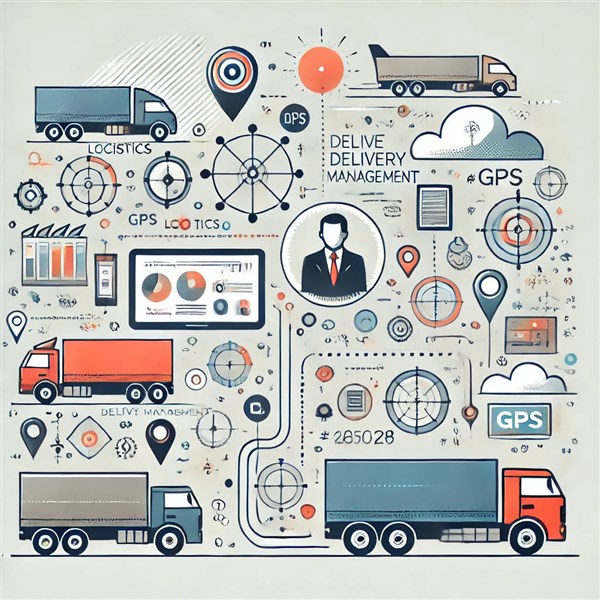Unable to find what you're searching for?
We're here to help you find it
In today’s dynamic and interconnected supply chain environment, transportation management is no longer just about moving goods from point A to point B. It’s about doing so faster, cheaper, safer, and smarter. To stay competitive, logistics and transportation professionals must adapt to digital transformation—and data analytics sits at the heart of this shift.
As the logistics industry becomes more digitized, the demand for professionals trained in both transportation management and data analytics has soared. Companies are seeking employees who can not only understand the flow of goods and services but also leverage data to optimize performance, reduce costs, and improve customer satisfaction.
This blog explores the critical role of data analytics in modern transportation management training, including the core analytics competencies being taught, the technologies driving change, and why analytics-driven training is a must-have for today's supply chain workforce.
Transportation Management Training is a structured educational program—delivered via online platforms, vocational institutions, or corporate academies—that prepares professionals to manage, analyze, and optimize logistics and transportation operations.
Topics typically include:
Modern training programs now incorporate data analytics modules to reflect the growing influence of data-driven decision-making in this sector.
The logistics sector generates an overwhelming amount of data every day:
Without analytics, this data remains underutilized noise. With the right analytical tools and training, it becomes a competitive asset.
Modern training programs teach logistics professionals how to use analytics platforms to make faster, smarter decisions. Key concepts include:
For example, using real-time traffic data, drivers can reroute to avoid congestion, reducing fuel consumption and improving delivery time—leading to cost savings and customer satisfaction.
Transportation training now includes predictive and prescriptive analytics, which help professionals:
By mastering these concepts, trainees can proactively solve problems before they occur—transforming reactive operations into strategic ones.
Today’s transportation professionals are expected to be TMS power users. Training programs cover tools such as:
Learners gain hands-on experience in generating dashboards, creating KPIs, analyzing route efficiency, and integrating data from IoT and telematics platforms.
One of the biggest advantages of analytics in transport is route optimization. Training programs often include:
By understanding the analytics behind these models, transportation managers can save significant time and fuel, improve driver productivity, and minimize environmental impact.
Analytics training teaches participants how to analyze:
This allows businesses to identify cost-saving opportunities, negotiate smarter contracts, and forecast budgets with greater accuracy.
Transportation doesn’t work in isolation—it’s connected to inventory and warehousing. Data analytics helps optimize:
Modern training teaches how to align transportation data with inventory KPIs to ensure seamless and timely deliveries.
A growing trend in training is the use of simulated environments and case studies to teach analytics application in real-world scenarios. For example:
These exercises teach trainees to apply analytics in high-stakes scenarios, preparing them for real-world logistics challenges.
In transportation, compliance and safety are non-negotiable. Data analytics plays a key role in:
Training programs now include risk-based analytics, helping professionals create proactive safety strategies and audit-friendly reporting.
With growing emphasis on sustainable logistics, analytics helps:
Training programs often include sustainability analytics modules, helping logistics teams align with ESG (Environmental, Social, Governance) goals and government regulations.
Lastly, modern transportation management training equips learners to communicate insights effectively using dashboards and visualizations. This is crucial for:
The focus is on making data actionable, not just collecting it.
📚 What’s Covered in Analytics-Integrated Transportation Training?
Typical topics and tools include:
These tools prepare participants for data-centric roles in supply chain and logistics, from analyst to operations manager.
🏁 Final Thoughts
Transportation management is rapidly evolving, and data analytics is at the center of this transformation. Training programs that integrate analytics empower professionals to manage fleets efficiently, lower logistics costs, and enhance customer satisfaction.
By mastering the analytics skills covered in modern training, transportation professionals become strategic assets to their organizations—capable of making decisions backed by insight, not just instinct.
Now, more than ever, it's essential to choose the right training provider for transportation management training. One such provider is Koenig Solutions, a leading IT training company offering a range of courses, including those in data analytics and transportation management.

Aarav Goel has top education industry knowledge with 4 years of experience. Being a passionate blogger also does blogging on the technology niche.










